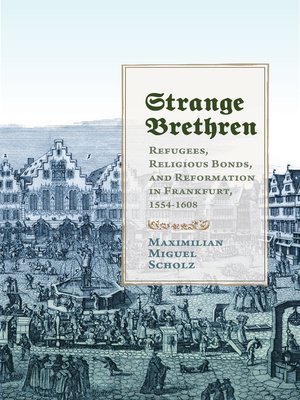Strange Brethren
ebook ∣ Refugees, Religious Bonds, and Reformation in Frankfurt, 1554–1608 · Studies in Early Modern German History
By Maximilian Miguel Scholz

Sign up to save your library
With an OverDrive account, you can save your favorite libraries for at-a-glance information about availability. Find out more about OverDrive accounts.
Find this title in Libby, the library reading app by OverDrive.



Search for a digital library with this title
Title found at these libraries:
| Library Name | Distance |
|---|---|
| Loading... |
In the sixteenth century, German cities and territories welcomed thousands of refugees fleeing the religious persecution sparked by the Reformation. As Strange Brethren reveals, these Reformation refugees had a profound impact on the societies they entered. Exploring one major destination for refugees—the city of Frankfurt am Main—Maximilian Miguel Scholz finds that these forced migrants inspired new religious bonds, new religious animosities, and new religious institutions, playing a critical role in the course of the Reformation in Frankfurt and beyond.
Strange Brethren traces the first half century of refugee life in Frankfurt, beginning in 1554 when the city granted twenty-four families of foreign Protestants housing, workspace, and their own church. Soon thousands more refugees arrived. While the city's ruling oligarchs were happy to support these foreigners, the city's clergy resented and feared the refugees. A religious fissure emerged, and Frankfurt's Protestants divided into two competing camps—Lutheran natives and Reformed (Calvinist) foreigners. Both groups began to rethink and reinforce their religious institutions. The religious and civic impact was substantial and enduring. As Strange Brethren shows, many of the hallmarks of modern Protestantism—its confessional divides and its disciplinary structures—resulted from the encounter between refugees and their hosts.
Studies in Early Modern German History







